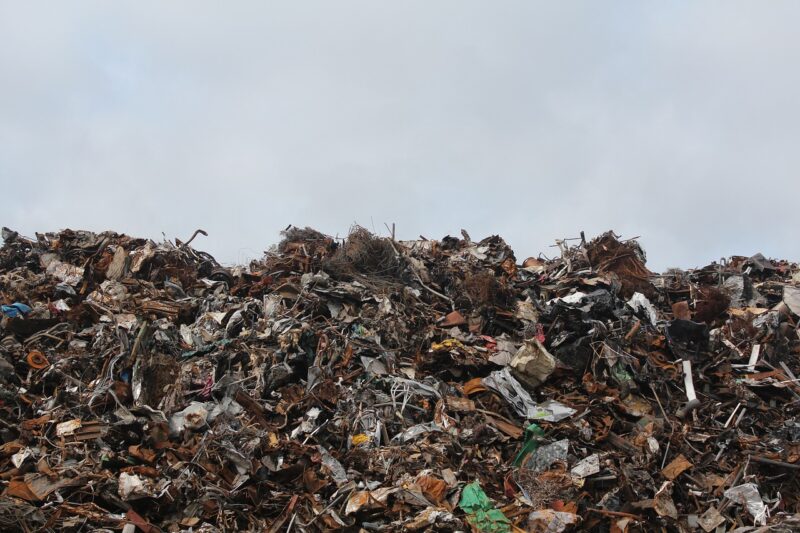Food Waste and Our Planet: How Small Changes Can Make a Big Impact
November 10, 2024

Food waste is an alarming issue that goes beyond just throwing away leftovers; it has far-reaching consequences for our planet. Each year, approximately 1.3 billion tons of food, worth about $1 trillion, is wasted globally, making food waste one of the largest contributors to environmental degradation. In this article, we will explore the effects of food waste on our environment, the social implications, and practical steps you can take to make a difference.
1. The Environmental Impact of Food Waste
When food is wasted, it doesn’t just disappear; it continues to impact the environment. Food that ends up in landfills generates greenhouse gases, primarily methane—a gas that is 28 times more potent than carbon dioxide over a 100-year period. According to the United Nations, if food waste were a country, it would be the third-largest emitter of greenhouse gases after China and the United States.
Key Environmental Consequences:
- Land Use: The land used to produce wasted food could have been preserved for forests, wildlife, or agriculture. It requires vast amounts of land to grow food that never reaches our plates.
- Water Usage: Water is heavily used in agriculture, and wasting food means wasting the water used to grow it. Approximately 1,800 gallons of water are used to produce just one pound of beef. Sinking resources into food that is ultimately discarded is an inefficient use of water—a precious resource in short supply in many regions.
- Pollution: The production of excess food leads to increased pesticide and fertilizer runoff, resulting in pollution of water bodies and soil degradation. These chemicals can harm aquatic ecosystems and reduce biodiversity.
2. Social Ramifications of Food Waste
Food waste is not merely an environmental issue; it also has significant social implications. While millions of people around the world go hungry every day, large quantities of food are wasted in developed nations. Addressing this disconnect between surplus and scarcity is critical for building a more equitable food system.
Impacts on Society:
- Hunger and Food Insecurity: Wasted food could be redirected to feed the millions facing hunger. In the U.S. alone, 35 million people are food insecure, while a significant portion of food is sent to landfills rather than food banks.
- Economic Losses: Businesses lose revenue when food is wasted, and consumers waste money purchasing food that is not consumed. In total, it is estimated that the average American family of four loses about $1,500 annually due to food waste.
- Cultural Implications: Food is an important cultural asset; wasting food can degrade cultural heritage associated with meals, cooking traditions, and communal dining experiences. Respecting food is often rooted in cultural practices that honor its production, preparation, and consumption.
3. How Small Changes Can Make a Big Impact
The onus to combat food waste doesn’t rest solely on large corporations or governments; individuals can make a significant difference as well. Here are some practical steps to minimize food waste in your home and community:
Practical Strategies:
- Plan Your Meals: Before grocery shopping, create a meal plan for the week. Make a shopping list and stick to it to avoid impulse purchases. Planning helps you buy only what you need and reduces the likelihood of excess food going bad.
- Embrace Leftovers: Be creative with leftovers. Utilize leftovers creatively by incorporating them into new dishes, such as soups, salads, or stir-fries. Leftovers can also be frozen for another meal, limiting waste.
- Proper Storage: Store food correctly to prolong its lifespan. Many fruits and vegetables have specific storage needs; understanding these can help maintain freshness. For example, keeping tomatoes on the counter rather than in the fridge can keep them tastier and reduce wasted produce.
- Get Creative with Bruised Fruits and Vegetables: If fruits or vegetables are bruised, consider using them in smoothies or soups rather than discarding them. This can significantly cut down your food waste.
- Compost Food Scraps: Instead of throwing away unable-to-eat parts of food (like peels, cores, and shells), compost them. Composting enriches the soil and minimizes the amount of organic waste sent to landfills.
- Participate in Food Sharing Initiatives: Engage in community-based food-sharing initiatives. Platforms like OLIO allow individuals to share food that they won’t use with their neighbors, fostering a sense of community and reducing waste at the same time.
4. Advocating for Change
While individual actions are crucial, collective action can magnify the impact. Advocacy for policies that address food waste at the institutional level can encourage food businesses and government bodies to adopt waste-reduction strategies. Here are some ways to advocate for change:
Advocacy Ideas:
- Support Food Waste Legislation: Encourage your local government to implement policies that reduce food waste, including food donation programs, incentives for businesses that cut waste, and educational initiatives about food waste reduction in schools.
- Spread Awareness: Use social media to share information about food waste and its impacts. By raising awareness, you encourage others to rethink their food consumption habits.
- Engage with Businesses: Advocate for transparency and proactive strategies from restaurants and grocery stores to manage inventory wisely and donate surplus food. Customers have a voice; use it to promote good practices.
Conclusion: Your Role in Reducing Food Waste
Combating food waste is essential for environmental sustainability, social equity, and economic resilience. As individuals, we have the power to effect change through our choices and behaviors. By understanding the issue, adopting smart shopping and food preparation practices, and advocating for broader systemic change, we can transform our relationship with food and protect our planet for future generations.
As you embark on your journey toward reducing food waste, remember that every small change counts. Together, our collective efforts can pave the way for a more sustainable and equitable food system.







